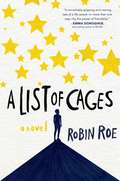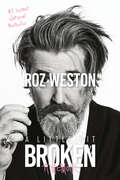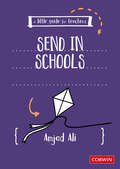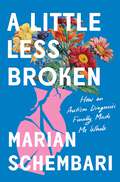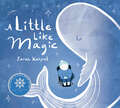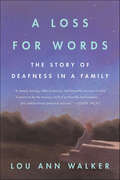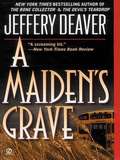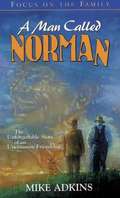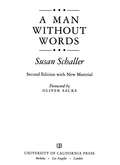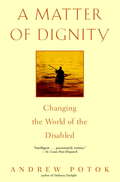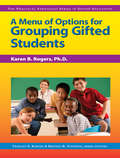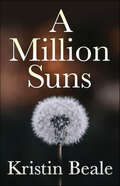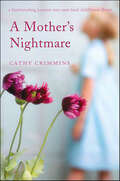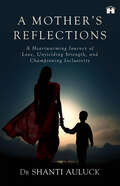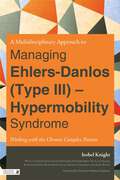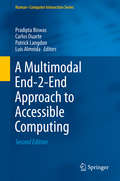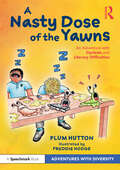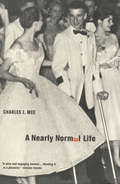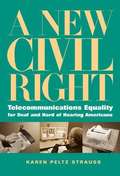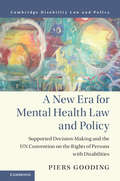- Table View
- List View
A List of Cages
by Robin Roe<p>When Adam Blake lands the best elective ever in his senior year, serving as an aide to the school psychologist, he thinks he's got it made. Sure, it means a lot of sitting around, which isn't easy for a guy with ADHD, but he can't complain, since he gets to spend the period texting all his friends. Then the doctor asks him to track down the troubled freshman who keeps dodging her, and Adam discovers that the boy is Julian--the foster brother he hasn't seen in five years. <p>Adam is ecstatic to be reunited. At first, Julian seems like the boy he once knew. He's still kind hearted. He still writes stories and loves picture books meant for little kids. But as they spend more time together, Adam realizes that Julian is keeping secrets, like where he hides during the middle of the day, and what's really going on inside his house. Adam is determined to help him, but his involvement could cost both boys their lives. <p>First-time novelist Robin Roe relied on life experience when writing this exquisite, gripping story featuring two lionhearted characters.
A Little Bit Broken: A Memoir
by Roz WestonIt never gets better, but it does get easier. That's the first thing Roz says to anyone who asks him for advice. Anyone who's fighting like hell, just hanging on or putting the pieces back together. When you're broken, fixed becomes an obsession. Roz is a multi-platform entertainer and storyteller who hosts three shows a day and sleeps five hours a night. On The Roz & Mocha Show, ET Canada Live and Entertainment Tonight Canada Roz built an audience and turned them into family. But as with most families, there is just some shit we don't talk about. From growing up in a small town to getting lost, drunk and terrified in New York while interning for The Howard Stern Show; from finding comfort in the arms and beds of strangers to kicking an opioid addiction he didn't know he had; from broken bones to broken hearts and a broken marriage. From navigating grief and guilt following the devastating loss of his father to persevering in the face of an ongoing and private battle with his own body. All is shared in Roz's disarming signature blend of blunt truth and humour. A Little Bit Broken is a deeply personal and inspiring account of self-forgiveness, redemption and recovering from bad choices—because let's face it, the reason we make bad choices is that they usually feel really good. And Roz has made them all. "This book is the whole story I've never shared before. . . . This is the shit we don&’t talk about. Welcome to the family."
A Little Guide for Teachers: SEND in Schools (A Little Guide for Teachers)
by Amjad AliSpecial Educational Needs are wide ranging and important to consider. No matter the setting, age, or subject it is imperative for all teachers to be up to date and confident with providing an accessible education for all their students. This little book provides you with the perfect starting point. Packed with essential information and practical ways to support the multitude of needs in your classroom, this book is a must-have for teachers. This book is: Authored by an expert SENDCo and consultant Easy to dip in-and-out of Full of interactive activities, encouraging you to write into the book and make it your own Short and can be read in an afternoon!
A Little Guide for Teachers: SEND in Schools (A Little Guide for Teachers)
by Amjad AliSpecial Educational Needs are wide ranging and important to consider. No matter the setting, age, or subject it is imperative for all teachers to be up to date and confident with providing an accessible education for all their students. This little book provides you with the perfect starting point. Packed with essential information and practical ways to support the multitude of needs in your classroom, this book is a must-have for teachers. This book is: Authored by an expert SENDCo and consultant Easy to dip in-and-out of Full of interactive activities, encouraging you to write into the book and make it your own Short and can be read in an afternoon!
A Little Less Broken: How an Autism Diagnosis Finally Made Me Whole
by Marian SchembariOne woman’s decades-long journey to a diagnosis of autism, and the barriers that keep too many neurodivergent people from knowing their true selvesMarian Schembari was thirty-four years old when she learned she was autistic. By then, she’d spent decades hiding her tics and shutting down in public, wondering why she couldn’t just act like everyone else. Therapists told her she had Tourette’s syndrome, obsessive-compulsive disorder, sensory processing disorder, social anxiety, and recurrent depression. They prescribed breathing techniques and gratitude journaling. Nothing helped.It wasn’t until years later that she finally learned the truth: she wasn’t weird or deficient or moody or sensitive or broken. She was autistic.Today, more people than ever are diagnosed with autism spectrum disorder. Testing improvements have made it easier to identify neurodivergence, especially among women and girls who spent decades dismissed by everyone from parents to doctors, and misled by gender-biased research. A diagnosis can end the cycle of shame and invisibility, but only if it can be found.In this deeply personal and researched memoir, Schembari’s journey takes her from the mountains of New Zealand to the tech offices of San Francisco, from her first love to her first child, all with unflinching honesty and good humor.A Little Less Broken breaks down the barriers that leave women in the dark about their own bodies, and reveals what it truly means to embrace our differences.
A Little Like Magic
by Sarah KurpielGlistening with winter charm, this is an exhilarating, tender story of pushing past your comfort zone and finding inspiration in art and natural beauty.Our young narrator doesn&’t like itchy hats or cold wind, and she especially doesn&’t like going places she&’s never been before. But she reluctantly agrees to join her mom at an ice festival, where they watch sculptors chisel and drill until it&’s too cold to watch anymore. That night the girl discovers that she has lost the horse figurine she&’d brought with her, and she wishes she&’d never gone . . . until the next night, when they return to the festival and see what the artists have created: sparkling, glorious sculptures that feel a little like magic. One surprise in particular seems even more magical to the girl. The ice art will stay with her long, long after it has melted away.
A Look Into Our "i's": A Compilation of Introspective Writings From a Group of Extraordinary Young People With Visual Impairments
by Delta Gamma Center for Children With Visual ImpairmentsStories about how their visual impairments have affected their lives from a dozen teenagers aged 13 to 21.
A Loss for Words: The Story of Deafness in a Family
by Lou Ann Walker“A personal journey of introspection by a young woman whose childhood was spent as parent to her deaf parents” (Kirkus Reviews).From the time she was a toddler, Lou Ann Walker acted as the ears and voice for her parents, who lost their hearing at a young age. As soon as she was old enough to speak, she assumed the responsibility of interpreter—confirming doctors’ appointments and managing her parents’ business transactions. While the Walkers’ family was warm and loving, outside the comfort of their home, they faced a world that misunderstood and often rejected them.In this deeply moving memoir, Walker offers us a glimpse of a different world, bringing with it a broader reflection on how parents grow alongside their children and how children learn to navigate the world through the eyes of their parents. In recounting her story, she encourages us to question the inequalities that shape our society, introduces us to the warm, supportive deaf community, and illuminates the creativity and kindness of humanity.Winner of the Christopher Award“A deeply moving, often humorous, and beautiful account of what it means to be the hearing child of profoundly deaf parents . . . I have rarely read anything on the subject more powerful or poignant than this extraordinary personal account by Lou Ann Walker.” — Oliver Sacks
A Maiden's Grave
by Jeffery DeaverEight vulnerable girls and their helpless teachers are forced off a school bus and held hostage. The madman who has them at gunpoint has a simple plan: one hostage an hour will die unless the demands are met. <P><P>Called to the scene is Arthur Potter, the FBI's best hostage negotiator. He has a plan. But so does one of the hostages-a beautiful teacher who's willing to do anything to save the lives of her students. Now, the clock is ticking as a chilling game of cat and mouse begins.
A Man Called Norman
by Mike AdkinsThis is the moving story of two men, an eccentric old man and a Christian musician, whose lives intertwine in a way that neither would have expected and only God could have planned.
A Man without Words
by Susan SchallerA Man without Words vividly conveys the challenge, the frustrations, and the exhilaration of opening the mind of a congenitally deaf person to the concept of language.
A Man's Stature
by Henry Viscardi Bernard M. BaruchThe autobiography of Henry Viscardi, a man who grew up in the 1930s with physically disabled legs and a short stature. Through hard work and determination, Henry obtains educational, job, and personal success. Fitted with prostetic legs at age 25, Henry goes on to heading an organization to help people with disabilities obtain jobs.
A Matter Of Dignity: Changing the Lives of the Disabled
by Andrew PotokI realized that I needed to learn about the legislative and legal aspects of disability as much as I did about our feelings regarding wholeness, beauty and ugliness, about the state called normalcy, about liberating technologies and therapies, about the role of the disabled in history and literature. And what could better inform and enlighten me than contact with people who help create access, who elicit change via care, support, teaching, and study as their life's work? As it turned out, I have learned from them that, in spite of the American addiction to youthfulness, "normalcy," virility, activity, and physical beauty, diversity in all its forms provides not only fascination but strength. Diversity tends toward higher forms, uniformity toward dullness and extinction. What could make more sense than to value all that is diverse, unexpected, and exuberantly impure?
A Menu Of Options For Grouping Gifted Students
by Karen B. RogersFrom grouping by ability, to grouping by interest, to grouping by learning style, the use of grouping in the gifted and regular education classroom has proven to be a successful method of instruction for students. Grouping provides teachers with an effective means of providing gifted students with challenging coursework and access to advanced content, and gives students an avenue to create a peer group of other gifted students. Karen B. Rogers, a leader in the field of gifted education, provides teachers with practical advice for choosing a grouping option that best fits their students and information on how to assess their grouping choices. This book gives teachers tips for grouping gifted students in and out of the classroom and provides a menu of options for serving gifted students. This is one of the books in Prufrock Press' popular Practical Strategies Series in Gifted Education. This series offers a unique collection of tightly focused books that provide a concise, practical introduction to important topics concerning the education of gifted children. The guides offer a perfect beginner's introduction to key information about gifted and talented education. Educational Resource
A Million Suns
by Kristin BealeWithin A Million Suns, Kristin Beale learns how to move from the darkness of her disability, into the sunlight of her new circumstance.Kristin was in an accident in 2005 that left her in a wheelchair. That same accident changed her life – for the better. A Million Suns is the story of her embracing her disability; navigating the world, both socially and logistically; and trying to make the best of a “bad” situation. A Million Suns recounts Kristin’s effort to embrace her difference and discover a happiness she never, ever expected.
A Most Noble Benefaction: The Matilda Ziegler Magazine for the Blind
by C. Michael MellorFrom the letter in 1908 that started it all, this book tells the story of the Matilda Ziegler Magazine for the Blind, how it changed history, and has helped change many lives for the better.
A Mother's Nightmare: A Heartrending Journey into Near Fatal Childhood Illness
by Cathy CrimminsIn the tradition of Lorenzo's Oil, a brutally searing story of one mother's quest to save her child's life.One day Kelly Crimmins was a happy seemingly healthy twelve-year-old; the next she confessed to her mom that she'd had blood in her urine for months. After a series of tests, Kelly was diagnosed with a life-threatening, potentially terminal autoimmune disease.A Mother's Nightmare details Cathy and Kelly's three-year medical and emotional journey, which took them from Philadelphia to Minnesota's Mayo Clinic and back again. Cathy writes about the toll taken on a young girl who suddenly becomes a patient, and about a mom who in fighting for her little girl's life becomes sick herself with worry and fear. As she did in her award-winning Where Is the Mango Princess?, Cathy makes illness both personal and universal. It's an account all readers will find memorable and moving.
A Mother's Reflections: A Heartwarming Journey of Love, Unyielding Strength, and Championing Inclusivity
by Dr. Shanti AuluckDiscover a world beyond the shadows of perfection...In this heartwarming tale, Dr Auluck shares her life&’s turning point—the birth of her son, Puneet, who was born with Down Syndrome. What initially appeared as a catastrophic event for a deeply intellectual mind led to a deep inner churning. As she grappled with the complexities of her child&’s condition, she embarked on a path of self-discovery and profound empathy.This book explores the author&’s emotional journey through three sections: Her personal experiences challenging societal norms, insights into intellectual disability and its impact on personal development as a psychologist, and her role as an activist creating Muskaan—an adult training and employment centre for individuals with intellectual disabilities. Emphasising the importance of understanding their world, she advocates for holistic development to nurture responsible and emotionally stable adults. The book also highlights how her Vedanta-rooted vision provided strength amid life&’s challenges.A Mother&’s Reflections is a raw and inspirational tale of personal growth, empathy, and social change, exploring the depths of humanity and the transformative power of love and acceptance.
A Mother's Touch: The Tiffany Callo Story
by Jay MathewsThe author, a journalist, retraces the life of Tiffany Callo and her battle to regain custody of her two children. Tiffany, a teenage mother living on public assistence, was deemed an unfit mother by the children's services of Santa Clara County, CA. Her disability - cerebral palsy - was used as a major strike against her. Callo's case aroused wide publicity and helped arouse interest in the rights and concerns of parents with disabilities.
A Multidisciplinary Approach to Managing Ehlers-Danlos (Type III) - Hypermobility Syndrome: Working with the Chronic Complex Patient
by Rodney Grahame Isobel KnightThe complex effects of Ehlers-Danlos Syndrome (Type 3, Hypermobility), or EDSIII, on a patient's physical and mental wellbeing are extremely challenging for everyone involved, requiring a multidisciplinary care team and enormous dedication from the patient. This book presents an overview of what it means to be a chronic complex patient, examining the wide range of physiological and psychological implications associated with EDSIII and other conditions such as endometriosis and fibromyalgia. It explores the exercise and rehabilitation work involved in managing the condition effectively, considering a diverse range of medical treatments and complementary approaches including physiotherapy, Bowen Technique and Feldenkrais Method(R). There are contributions and insights throughout from experts in the fields of physiotherapy, rheumatology and health psychology, all of whom have extensive experience of working with complex chronic patients. The author links her own symptoms and experiences to those of other EDSIII patients and discusses how she has been able to reach a point where she can successfully manage the condition. This book will be essential reading for professionals working with EDSIII and other complex conditions including medical professionals, physiotherapists, occupational therapists, psychologists, counsellors and complementary therapists, and will be of interest to patients with EDSIII wanting to learn more about effective management of the condition.
A Multimodal End-2-End Approach to Accessible Computing (Human–Computer Interaction Series)
by Pradipta Biswas Patrick Langdon Luis Almeida Carlos DuarteThis book illustrates how Interactive Systems can help elderly and disabled populations engage with the world around them by finding methods of overcoming the difficulties these communities face when using such systems by presenting the latest in state-of-the-art technology and providing a vision for accessibility for the near future. The challenges faced by accessibility practitioners are discussed and the different phases of delivering accessible products and services are explored. A collection of eminent researchers from around the world cover topics on developing and standardizing user models for inclusive design, adaptable multimodal system development for digital TV and ubiquitous devices, presenting research on intelligent voice recognition, adaptable pointing, browsing and navigation, and affect and gesture recognition. The research not only focuses on how these can be hugely beneficial to primary users, but often finding useful applications for their able-bodied counterparts. For this new edition, new chapters have been added focusing on the latest developments in games for the visually impaired, inclusive interfaces for the agricultural industry in India and technologies to improve accessibility in broadcasting in Japan. A Multimodal End-2-End Approach to Accessible Computing will be an invaluable resource for both researchers and practitioners alike.
A Nasty Dose of the Yawns: An Adventure With Dyslexia And Literacy Difficulties (Adventures with Diversity)
by Plum HuttonZack has always found school difficult. Even though he is good at maths and excellent at flicking elastic bands, trying to read and write is like trying to fight a kraken. One day, when he discovers the rest of his class infected by a mysterious sleeping sickness, Zack draws on his strengths resulting in some unexpected consequences . . . This engaging story, suitable for readers aged 8–12, explores some of the challenges faced by learners who find literacy unusually difficult. Alongside the practical difficulties of living in a world that assumes good levels of literacy, it explores some of the psychological impacts of struggling to achieve a skill that most children acquire with relative ease. Ultimately, it shows children that they can draw on their strengths and overcome the challenges in their way. Also available as a set with a supporting guide, this book operates as a fun and entertaining standalone story, as well as an educational opportunity. The range of vocabulary means it can be used flexibly, for independent, paired or whole-group reading. It is a must-have book for every classroom.
A Nearly Normal Life: A Memoir
by Charles L. MeeIn the summer of 1953 the author was a carefree, athletic boy of fourteen. But after he collapsed during a school dance one night, he was suddenly bedridden, drifting in & out of consciousness, as his body disintegrated into a shadow of its former self. He had been stricken with spinal polio. When he emerged from the grip of the disease, he was confronted with a life change so enormous that it challenged all he had believed in & forced him, despite his young age, to redefine himself. His once stereotypically normal life, filled with baseball & swimming pools & dreams of girls, had been irreversibly altered. He was almost the same person he had been; he was nearly normal. His moving personal narrative is a textured portrait of life in the fifties - a time when America & her fighting spirit collided with this disease. Both funny & profound, he is a gifted, unique writer, who unravels the mysteries of youth in a Cold War climate, who gives voice to the mind of a child with a potentially fatal disease, & whose recognition of himself as a disabled outsider heightens his brilliant talents as a storyteller.
A New Civil Right: Telecommunications Equality for Deaf and Hard of Hearing Americans
by Karen Peltz StraussKaren Peltz Strauss reveals how the paternalism of the hearing-oriented telecommunications industries slowed support for accessible technology for the deaf and hard of hearing users.
A New Era for Mental Health Law and Policy: Supported Decision-Making and the UN Convention on the Rights of Persons with Disabilities (Cambridge Disability Law and Policy Series)
by Piers GoodingThe Convention on the Rights of Persons with Disabilities (CRPD) has generated new ideas and standards in healthcare and disability law and policy. In the mental health context, the CRPD directs governments to ensure people with mental impairments are treated equally before the law, including ensuring people have access to the resources necessary to enjoy their rights. But what this means in practice remains unclear. In addition, current domestic laws that authorise involuntary psychiatric interventions stand at cross-purposes with the CRPD, which requires respect for the 'will, preference and rights' of persons with disabilities 'on an equal basis with others'. This book explores the implications of the CRPD for law, policy and practice that responds to the complex issues raised by mental health impairment and disability. It argues that the support framework of the CRPD holds potential to address persistent shortcomings in mental health law and policy. Proposes a new approach to mental health and the law Promotes the application of international human rights law to mental health law, policy and practice Considers new solutions to longstanding problems regarding coercive mental health treatment
